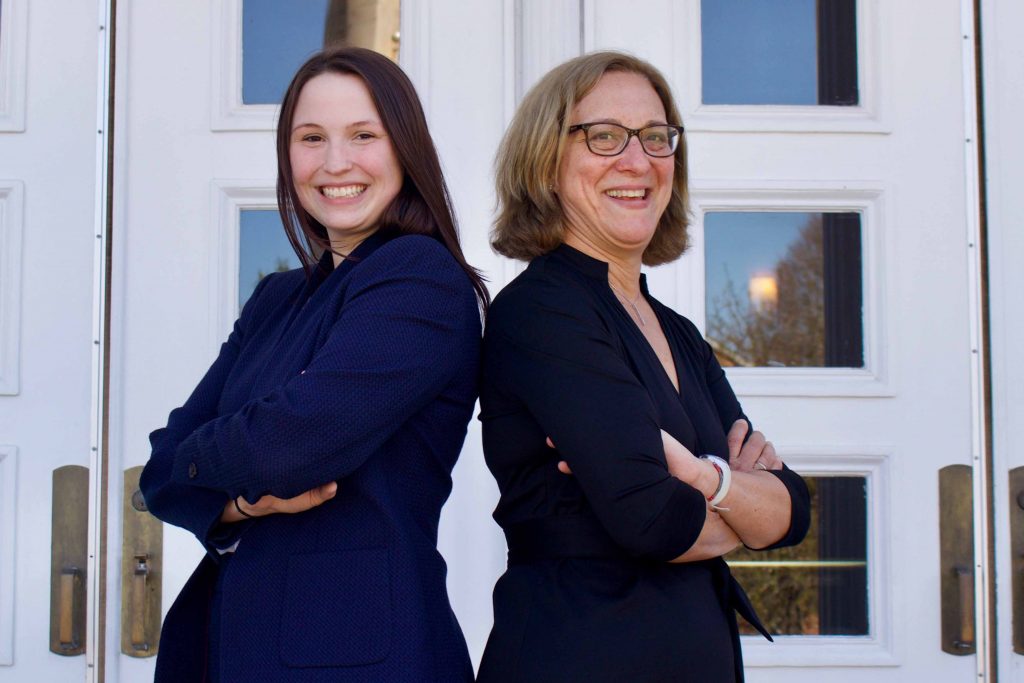BC Law was part of two recent groundbreaking victories in the Massachusetts Supreme Judicial Court (SJC) on behalf of the wrongly convicted. Student Sarah Carlow ’20 and Professor Sharon Beckman (above) of the Boston College Innocence Program, along with the exoneree Dennis Maher and attorneys representing the CPCS Innocence Program and New England Innocence Project, submitted an amicus brief contributing to the victories.
Not only was the effort important to the adjudication of innocence claims, it was also a tremendous learning experience for a second-year law student, says Beckman. “Sarah had the opportunity to meet and work with the leaders of the Massachusetts innocence community on this brief. Her excellent legal research was helpful to the team in crafting the winning statutory interpretation arguments.”
Adopting the arguments made by amici and by appointed defense attorney Merritt Schnipper, who argued both cases, the SJC held that forensic testing is available in Massachusetts not only to show that the wrong person was convicted of a crime, but also to show that no crime occurred.
Massachusetts is now one of the few states in the country to interpret its forensic testing statute to include self defense within the definition of factual innocence. The cases are Commonwealth v. Williams, SJC 12560 and Commonwealth v. Putnam, SJC 12596.


